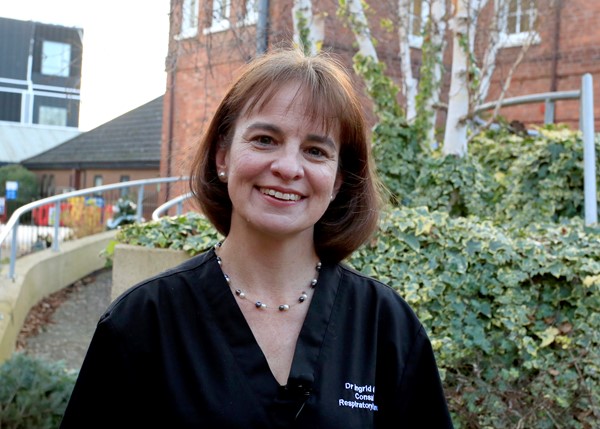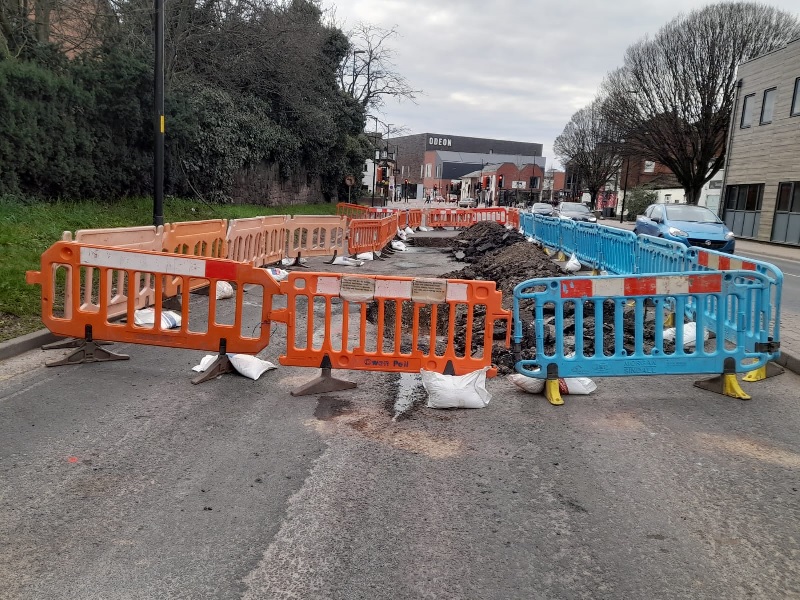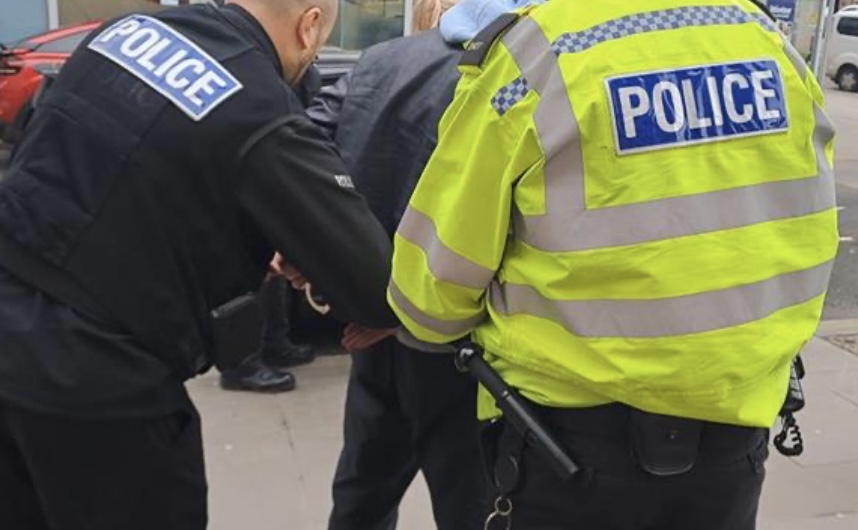A respiratory consultant at Hereford County Hospital has spoken of her personal battle against COVID-19 and how she’s happy to be “first in the queue” to get vaccinated.
Ingrid Du Rand, who has been on the frontline of treating COVID-19 patients this year, began her own very personal battle with the virus during November when she started to feel unwell.
A fit forty-something and keen runner, Ingrid’s first inclination that something wasn’t quite right was when she slowed up on one of her regular runs.
“I felt more tired than usual. This was unusual for me. A couple of days later I lost my sense of taste and smell,” said Ingrid.
For the best part of a month, the mother of three suffered from severe head and muscle aches and had a temperature of just over 39C for three of the weeks with a cough and breathlessness.
Ingrid’s breathing became laboured and she spent most of the time in bed losing a lot of strength.
“I still feel weak now and I’ve lost a stone in weight,” she added.
“COVID-19 is a random disease. You don’t expect it to attack someone in their forties who is fit, but it completely bowled me off my feet.”
Ingrid, who works at Hereford County Hospital with her husband – also a consultant at the hospital – understands the seriousness of the disease. She sat down with her husband in the spring this year, during the first phase of the pandemic, and they made sure their wills were up to date and plans in place for the future care of their children should the unthinkable happen.
“I’d looked after countless Coronavirus patients at the hospital, but this shows that it can infect someone in a low risk category. Nothing could have prepared me for what I went through.”
Ingrid began her return to work in the last couple of weeks.
In her capacity as a respiratory consultant she receives constant updates from around the world on the COVID-19 outbreak, treatment for the virus and the various vaccines and their trials.
“I receive dozens of emails a day relating to the outbreak and have scrutinised the papers and test results of the current vaccines that are being made available.
“I’m convinced that they are safe and I’d be happy to be at the front of the queue with the vaccines now going out to staff at the Trust.
“Of course, there is always a longer term risk with any vaccine, but the risk associated with not having the vaccine and contracting COVID-19 is so much higher.”
Ingrid explains the way news about the vaccines broke through the media created opportunities for some of the “fake news” about the safety of the vaccines.
“Normally a scientific paper is published first in a peer reviewed journal, and then the next day you get the coverage and interviews in the media.
“With these vaccines, it seems the story came out in the media – and on social media – first, with the science behind them coming out afterwards.
“This hasn’t helped, but from all the research I’ve seen and investigated – I’ve watched the vaccines pass through the various phases of testing – I have concluded that these vaccines are safe.
“This is our generation. It’s our war and we must trust the science.”
While Ingrid is back at work, the experience of suffering the virus has given her a new insight into the challenges those with COVID-19 face.
“I was humbled by the support I received from friends and colleagues at the hospital. It was amazing to see meals dropped off at the garden gate for my family.
“We really detached ourselves from everyone while I was ill and it was reassuring to know we had good friends and colleagues who supported us as a family and I’d like to thank them for the support they have given us.”
In conclusion, Ingrid said she was optimistic about the future.
“The vaccines which have been developed so quickly are effective and safe. They come as hope after a long and arduous year and are a real positive note on which to start 2021.”




